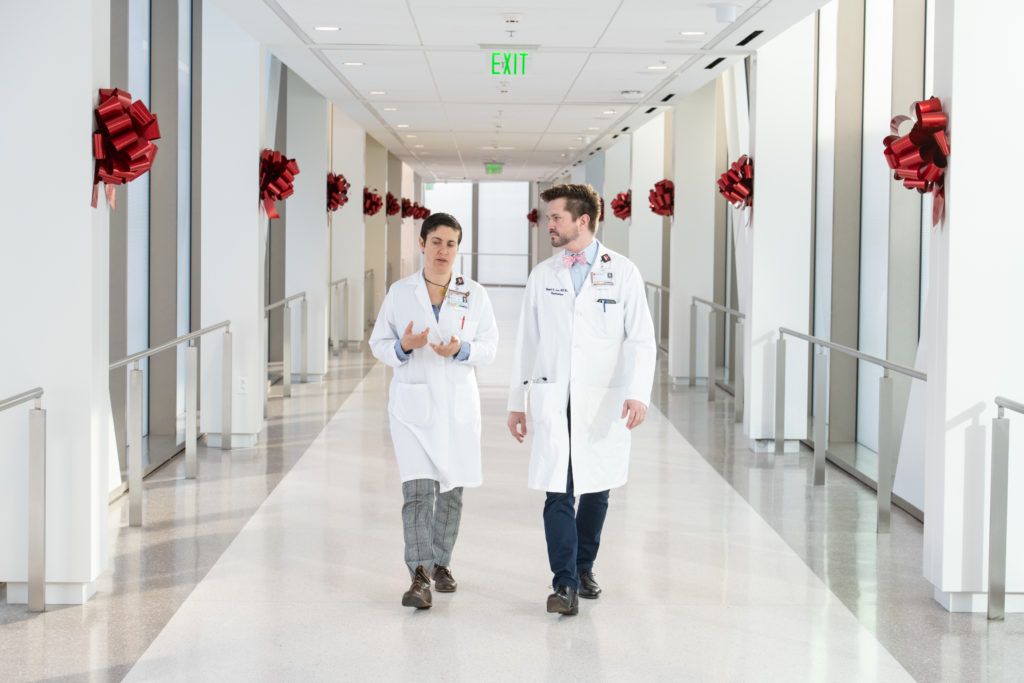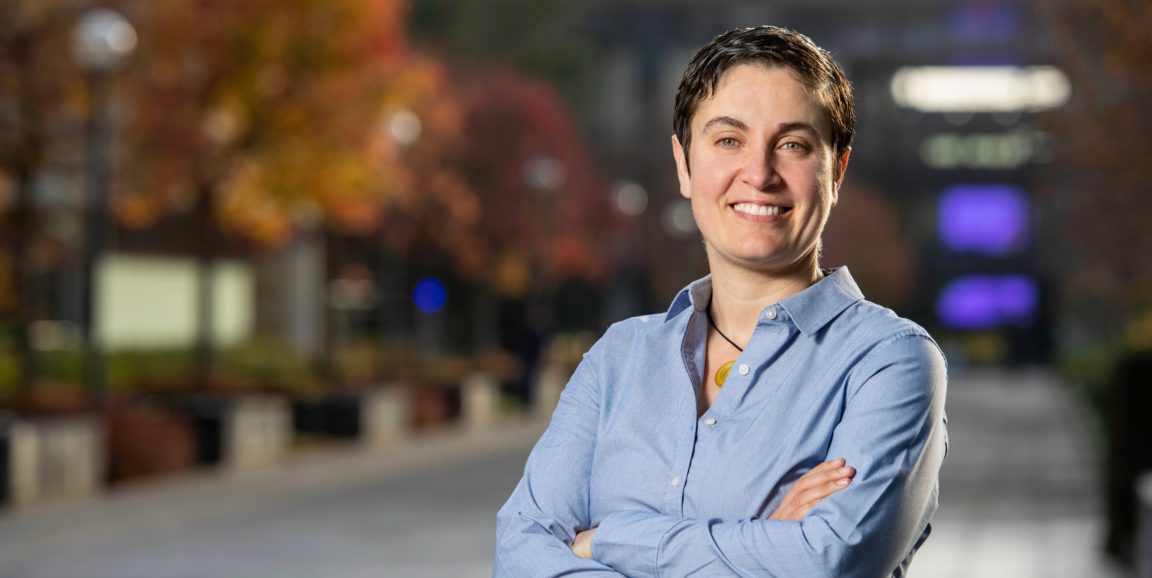In our "Behind the Scenes" series, Stanford Medicine physicians, nurses, researchers and staff members share a glimpse of their daily lives.
For Stanford obstetrician/gynecologist Juno Obedin-Maliver, MD, MPH, there is no typical day. Part of what she loves about her job is that every day is different.
Obedin-Maliver practices the full spectrum of gynecology, including outpatient, inpatient, operative and emergency services. She also co-directs The PRIDE Study, which is a national prospective, longitudinal cohort of sexual and/or gender minority people -- including but not limited to lesbian, gay, bisexual, transgender and queer people.
I was excited to speak with her about how she fits all of this into her day -- both before and during the COVID-19 pandemic.
Pre-COVID morning routine
I get up between 5 a.m. and 6:15 a.m. I usually make some tea and have breakfast before getting my 3-year-old son up, dressed and fed. Then, either my partner or I take him to school. Next, I head down to Stanford from San Francisco where I live.
Organizing the workweek
I see patients about 30% of the time, and the rest of the time I do research. Days that I don't see patients are a mix of research writing and meetings -- with overnight calls or surgery kind of sprinkled in here and there.
Part of my research team is at Stanford, part at the University of California, San Francisco and part at our office in the Oakland City Center. So, I have meetings with folks all over the Bay, and also all over the country, because we have collaborators and stakeholders across the United States.
The PRIDE Study
The main focus of The PRIDE Study is understanding the relationship between being a sexual and/or gender minority person and a person's health. And we think about health broadly: physical health, mental health, social health and wellbeing. We want to understand in more detail the well-documented health disparities among sexual and gender minority people, but also their health resiliency. We've enrolled about 18,000 people in the study.
I'm also working to build an LGBTQ+ program at Stanford, which will include clinical care, research and education.

Most productive time of the day
My most productive time is in the morning at home. I usually triage my email -- deleting spam, putting actionable items on my to-do list and putting anything that requires significant time on my calendar. And if I get up at 5 a.m., I can get an hour of uninterrupted writing in before my son wakes up -- which is awesome.
Evening ritual
I get home between 6 p.m. and 7:30 p.m., then I just hang out with my son and my partner. We give him dinner and a bath, read him books and get him to sleep. And then we have our own dinner. Sometimes we just hang out until bedtime. And sometimes, unfortunately, we get back on the computer to work.
In the evening, I like to meditate, if only for 10 minutes. I remember what I'm grateful for. And I generally read a novel before I go to bed. Right now, I'm reading a book called The Hakawati by Rabih Alameddine. It's pretty great. I try to get to sleep by 10 or 10:30 p.m.
My day during the pandemic
I still see patients one day a week, and it's a mix of in-person and video visits in the clinic. I also work some shifts on labor and delivery.
In terms of research, my team is still rocking and rolling, despite the challenges of COVID-19 and systemic violence around the country. I'm very lucky to work with an inspiring team dedicated to equity and justice.
Professionally, it's been a productive time, and we've published a number of papers. We've also launched a survey about the impact of COVID-19 for LGBTQ+ people, and a related survey about respiratory symptoms, and have had a few thousand responses already. The pandemic seems to be exacerbating systems of inequality, and that's certainly true for LGBTQ+ -- and even more so for LGBTQ+ people of color and those who are economically disadvantaged. As we enter Pride Month, we are also about to launch our fourth annual questionnaire on June 8, and celebrate having over 18,000 participants.
Having a 3-year-old at home and splitting his care throughout the day with my partner has been a big challenge though. Our kiddo misses his friends and school, as we all do. In many ways, we're closer than ever, and have had a lot of opportunities to do crafts and bake -- and we're growing food on our porch (tomatoes, lettuce, peppers, chard and strawberries!).
On the other hand, trying to still fit in a full work day is a struggle; it means working before our son is up and long after he goes to sleep, and unfortunately more screen time for him than ever before. That being said, we're so lucky to be healthy, have access to food and have jobs that allow us to work at least some of the time from home while still being of service.
Photos by Steve Fisch




